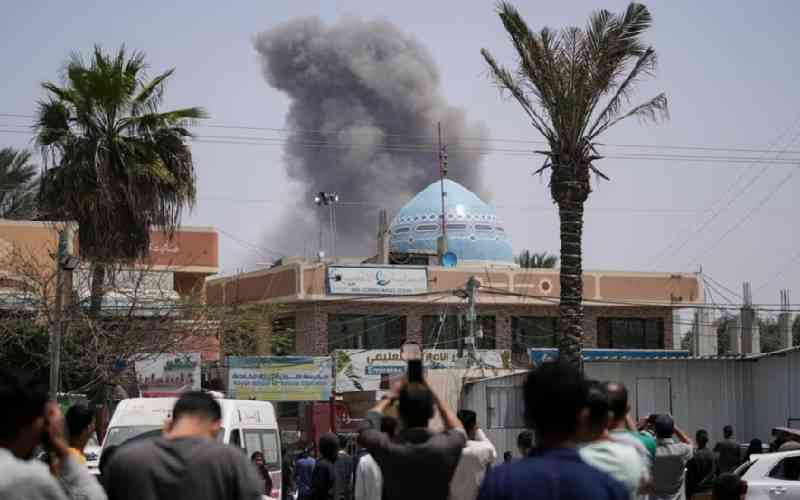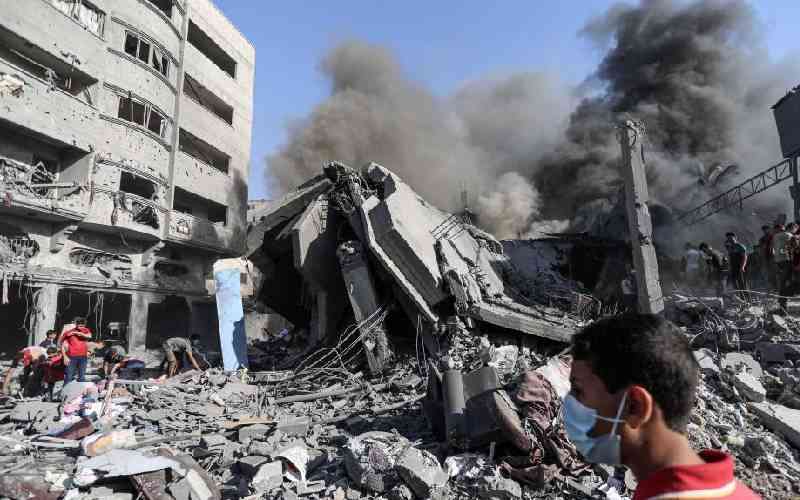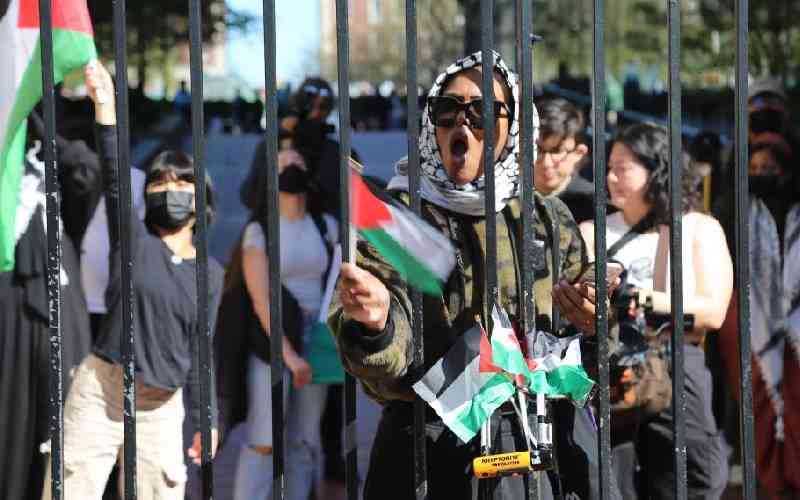Kayole is home to Gaza--- one of the fiercest gangs in Nairobi’s Eastlands.
Many of the residents in this area live below Sh100-a-day making life hellish, which has pushed many young people into a life crime.
The Gaza gang is believed to be behind a spate of killings and robberies in Eastlands but little is known about its operations.
A former gang member, to whom we will refer to as Martin* to protect his identity, takes us through the gang’s activities.
According to Martin, one is recruited to the gang after being recommended by a peer. Thereafter, a member is promised riches when being cultured into the gang.
When joining the Gaza gang, one has to first undergo an initiation process after which, he or she is fed with the gang’s doctrines.
How initiation into Gaza is done
The recruit takes an oath and undergoes rites administered by a medicine man. This involves imbibing a certain liquid and accepting paraphernalia. The idea, according to Martin, is to remove any shred of humanity from the recruit.
After the initiation, recruits are placed in groups according to their age, education and experience.
Older gang members are given firearms for criminal undertakings while younger ones are involved in transporting the firearms to the seniors for “missions”.
With a gun, Martin tells Standard Digital, the new recruit is emboldened. They become so bold that they are not scared by the police. Of course, the public does not bother gangsters.
Gaza gang dress code
Members of the gang identify themselves through a special dress code that includes Timberland shoes, a tattoo of a cross that is upside-down engraved on the left hand, rings on all fingers of the left hand and as a silver tooth on the right side.
Martin reveals to Standard Digital that Gaza is run like any other business. Each member is expected to turn in Sh35,000 after every two weeks, failure to which one can even get killed.
Stay informed. Subscribe to our newsletter
He alleges that some police officers are said to be part of the gang and keep a blind eye on its criminal activities.
Martin says gangsters who fail to meet their targets are betrayed to the police who gun them down after being provided with their photos and other personal details.
Extra judicial killing?
According to Martin, police will first post the picture of the gangster on social media platforms such as Facebook, under Kayole Crime Free or Dandora Crime Free pages, depending on where the gangster is based.
The police, he says, will again post his picture on a dummy account, say, Hessy Wa Kayole as a warning to the gang member.
After a week or two, the police will gun down the gang member claiming that he refused to heed their warning.
Efforts to contact the Kayole Officer Commanding Police Division (OCPD) to respond to the above allegations proved futile after he declined to pick our calls.
Abdullahi Boru Halakhe, a Kenyan senior policy and advocacy officer – Africa at International Rescue Committee based in Washington DC says the Kenyan police should follow legal procedures when dealing with criminals.
A report by Amnesty International 2017/18 ranked Kenya among the top countries when it comes to extra-judicial executions.
The study indicates that in 2016, 122 cases of extrajudicial killings were reported in Kenya out of the 177 reported in Africa.
Research by the American Academy for Child and Adolescent Psychiatry indicates that children and adolescents join gangs because of growing up in crime-infested surroundings.
Children are also likely to be inculcated into crime the research says if their close relatives are or were criminals.
The researchers found that a history of gang involvement in the family (family members who are current or former gang members) and violence in the home encourage juvenile crime.
Too little adult supervision, lack of positive roles models and exposure to media (television, movies, music) that glorifies gang violence, low self-esteem and sense of hopelessness are also responsible for turning children into criminals.
 The Standard Group Plc is a
multi-media organization with investments in media platforms spanning newspaper
print operations, television, radio broadcasting, digital and online services. The
Standard Group is recognized as a leading multi-media house in Kenya with a key
influence in matters of national and international interest.
The Standard Group Plc is a
multi-media organization with investments in media platforms spanning newspaper
print operations, television, radio broadcasting, digital and online services. The
Standard Group is recognized as a leading multi-media house in Kenya with a key
influence in matters of national and international interest.
 The Standard Group Plc is a
multi-media organization with investments in media platforms spanning newspaper
print operations, television, radio broadcasting, digital and online services. The
Standard Group is recognized as a leading multi-media house in Kenya with a key
influence in matters of national and international interest.
The Standard Group Plc is a
multi-media organization with investments in media platforms spanning newspaper
print operations, television, radio broadcasting, digital and online services. The
Standard Group is recognized as a leading multi-media house in Kenya with a key
influence in matters of national and international interest.









